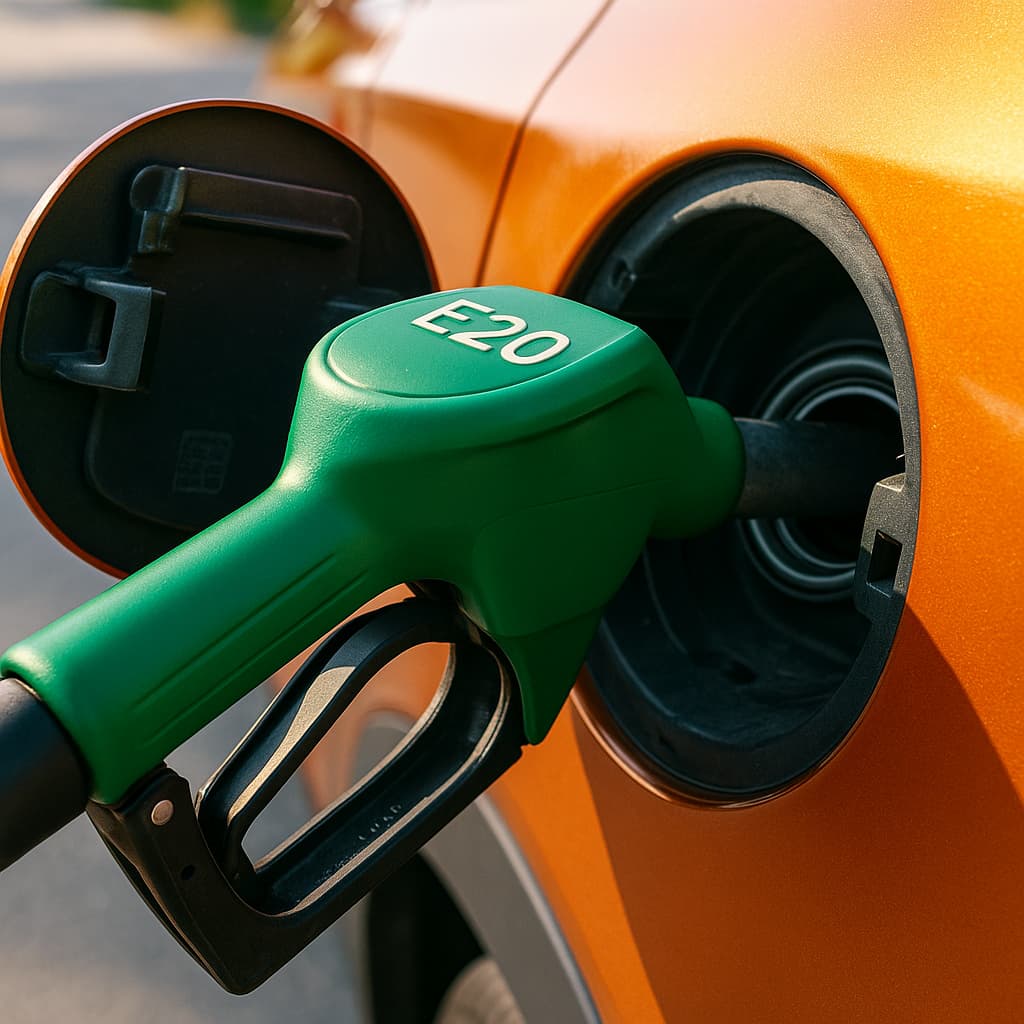What is E20 fuel?
E20 is a fuel made of 20% bioethanol and 80% fossil gasoline. It represents an evolution of SP95-E10, already widely available in France. Bioethanol is produced from plant materials (beet, sugar cane, corn), giving E20 a renewable component.
Why develop E20?
Faced with European goals to reduce greenhouse gas emissions and the search for energy independence, E20 is emerging as a transition fuel. It increases the share of renewable fuel without requiring a massive conversion of the car fleet.
What are the benefits of E20?
- Lower CO₂ emissions: up to –16% compared to SP95.
- Greater energy independence: thanks to local bioethanol production.
- Proven technology: close to SP95-E10, already compatible with 95% of gasoline vehicles.
What are the limits or constraints?
E20 is not without challenges:
- Engine compatibility: older vehicles may suffer from premature wear of the fuel system.
- Slightly higher consumption: around 3% according to ADAC, due to the lower calorific value of ethanol.
- Regulatory approval: current EU standards limit ethanol in gasoline to 10%.
Which vehicles are compatible?
Many recent gasoline models are already compatible with E20. Flex-fuel vehicles and post-2015 models could be approved with simple adjustments, but this will depend on manufacturers and future regulations.
Towards general adoption of E20 in France?
E20 is currently being tested in Germany but is not yet distributed in France. Its future will depend on:
- the adoption of a new European standard,
- the results of technical tests,
- and motorists’ acceptance.
Comparison with other gasoline types
| Fuel | % Ethanol | Compatibility |
|---|---|---|
| SP95 | 0% | All gasoline vehicles |
| SP95-E10 | 10% | 95% of gasoline fleet |
| E20 | 20% | Pending approval |
| Superethanol E85 | 85% | Flex-fuel vehicles |
See also: our article on Superethanol E85.
Sources: ADEME, ADAC, French Ministry of Energy Transition

Commentaire
Aucun commentaire pour l’instant. Soyez le premier à réagir !